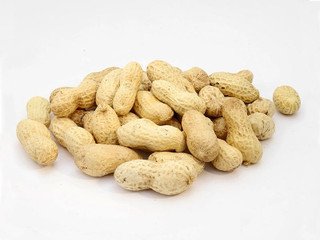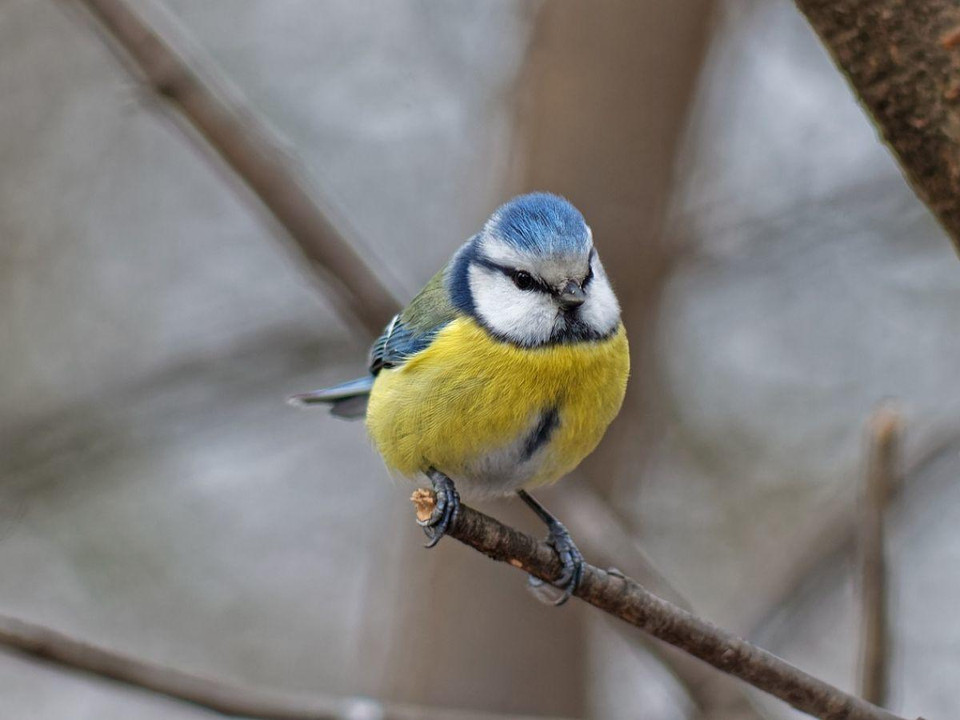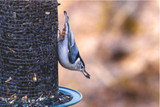Why You May See Less Birds In Winter
Winter is a time that birds we see deplete in numbers like many elements of wildlife. More often than not, this isn’t something to worry about. Not seeing many flying friends visit your garden during the colder months is to be expected. This blog aims to cover why you may see fewer birds in winter.
Following a pattern that may not seem logical to us humans, winter is often the time that we see the disappearance of many familiar birds and possible appearances of new garden visitors, usually those who have migrated to Britain or to a specific area.
Usually, birds travel and migrate in flocks, and so if one of them goes, so do the others! It is common that birds to find warmer lands during these months, to escape the bitter British cold and turbulent weather conditions. This isn’t to say that you should stop your feeding routines, you may be surprised by the number of visitors to your garden.
If your garden isn’t on a flock's usual route, it is highly unlikely that they will stop by during the colder months - but who knows! Our advice is to maintain the safe place your garden offers to birds year-round by keeping it clean and stocked up on food sources.
Where Do Birds Go In The Winter?
Usually, during the colder months, birds look for warmth (don’t we all). This isn’t to say however that they leave Britain or even the region they call home. Birds look for warmth in an abundance of places, often right on our doorsteps!
Although millions of birds migrate to warmer parts of Europe and even Africa during the winter, many of them stay right here in Britain.
Just because we don’t see them as much, doesn’t mean they aren’t there. Finding shelter and warmth in shrubs and bushes, close to heated homes or in nest boxes are often where birds go when the cold weather starts to get bitter.
How To Protect Birds And Wildlife In The Winter
Despite the layers of feathers on birds, long periods of freezing weather conditions can have catastrophic consequences for wildlife, especially birds.
When bird baths have frozen over and people stop putting out food, it makes it really difficult for birds to survive. Thousands, if not millions of birds die in the cold weather, due to the harsh conditions and depleting nutrient sources that they have on offer.
Protecting wildlife, including birds is crucial all year round, but most definitely during the winter months. You may feel as though not seeing the birds means you don’t need to offer fresh clean water and continuous food sources. This is where you are wrong!
Providing birds with a continuous, high-energy food source is crucial to protecting wildlife this winter.
What Type Of Food Should You Feed Birds During Winter?
Foods high in fat and protein are the most beneficial for birds during this time of the year, allowing them to stock up on that all-important layer of fat stored beneath their feathers.
Great foods to feed your garden visitors this winter include:
Kennedy Wild Bird Food’s Advice For Protecting Birds This Winter
At Kennedy Wild Bird Food, we pride ourselves on not only offering quality bird food but also quality advice.
If you would like to discuss why you might be seeing fewer birds this winter in more detail and what to do about it - don’t hesitate to get in touch and chat with a member of our team.
As always, if you are lucky enough to spot a bird this winter, be sure to log it in our Birdspotter App. You can check it out here.
Call us today on 01778 342665 or email info@kennedywildbirdfood.co.uk.
Recommended products
Explore Popular Articles
-
Top 11 Yellow Birds in Britain and the UK to Attract in Your Garden
15th Dec 2025Yellow birds bring a splash of colour and cheer to any garden. Observing these birds can be both rel
-
Should You Feed Birds Every Day? A Complete Guide on Feeding Birds
15th Dec 2025At Kennedy Wild Bird Food, we believe that understanding how to care for garden birds is as importan
-
How Sunflower Seeds Can Improve Your Bird's Health
14th Jun 2024Birds are quite attracted towards sunflower seeds, but have you ever wondered about sunflower seeds'














